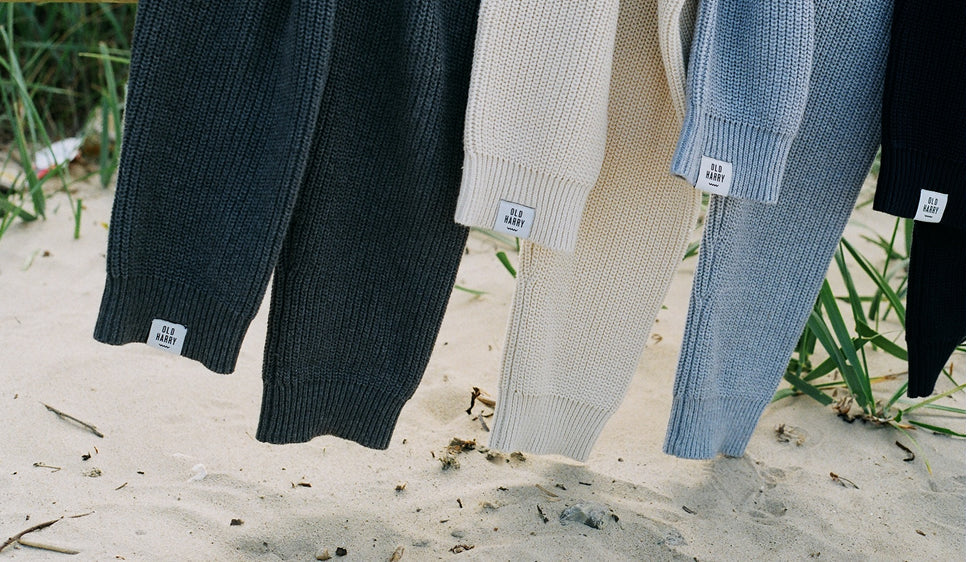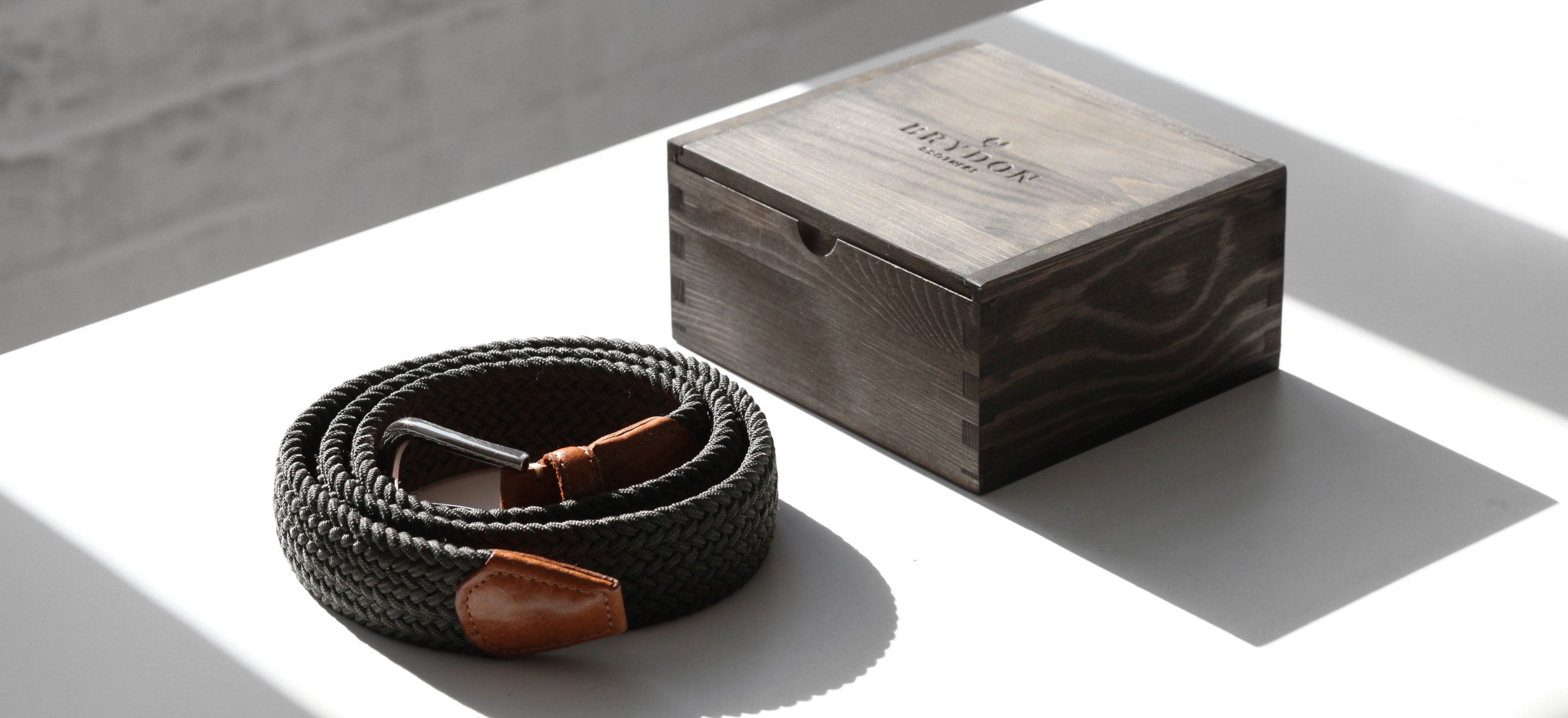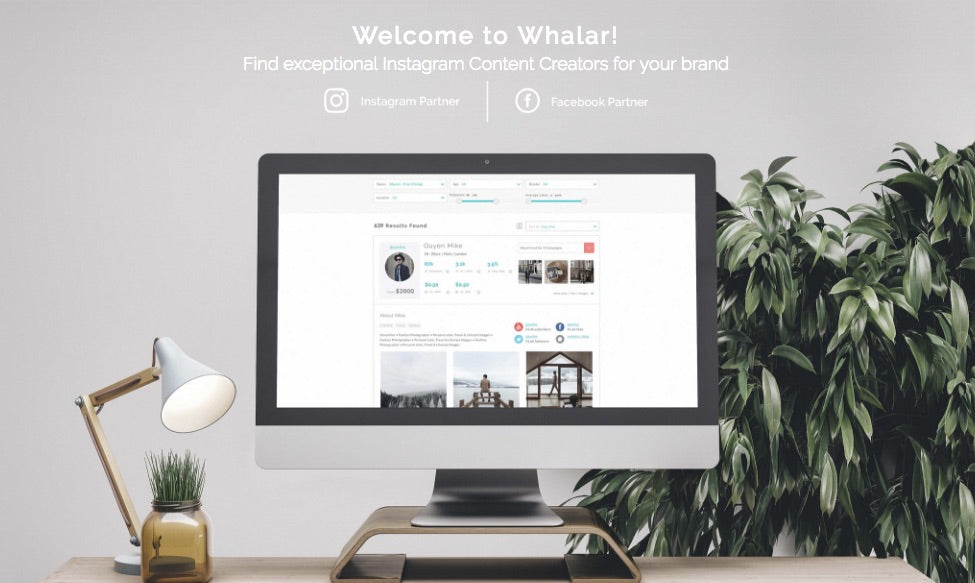You’ve probably heard founder stories that either involve a single owner who orchestrates the various moving parts of a business, or a duo of co-founders, where one generally steers the product and the other manages the day-to-day operation.
But a third pattern is emerging, especially when it comes to serial entrepreneurship, and it's driven by the idea of a “collective”: a group of friends or co-creators, each bringing their own skills and experience to the table to collaborate on a variety of ventures.
It's these groups that are oftentimes the most well-equipped for serial entrepreneurship—starting multiple, different ventures more for the joy of building successful businesses than merely running one.
Don't Have a Product Idea? Check Out Our Guide!
Learn how to tap into profitable niches and source winning product ideas in our free guide:How to Find a Product to Sell Online.
Download GuideSerial entrepreneurship: Why stop at one?
Among the world’s 960 self-made billionaires, 830 are serial entrepreneurs who have founded multiple business. These include notable entrepreneurs such as Richard Branson, Mark Cuban, and Elon Musk.
If anything, that's proof that success isn't the end-all of the desire to start that draws people to entrepreneurship in the first place.
As they figure out winning formulas, serial entrepreneurs hand off the day-to-day responsibility of running each business in favor of starting new ventures, collecting experience, resources and talent as they go.
Shore Projectsis a successful watch brand, inspired by the beauty of the British seaside, that lets wearers easily swap out watch straps. It was also a past winner ofShopify’s Build a Business competition. But what many wouldn't guess is that it's only one of at least 8 other businesses their team has built.
I talked to James Street, one of the co-founders of Shore Projects, about his team’s past endeavours and their latest venture, Old Harry, to find out how they managed to build so many different businesses including:
- Brydon Brothers: A quality handmade belt brand.
- Whalar: An influencer marketing platform, a unique member of their portfolio.
- Boho Chien(no longer active): Collars and accessories for the free-spirited dog.
- Koala Hoodie(no longer active): A Kickstarter project for the ultimate hoodie for the practical traveler.
- Old Harry: Their latest foray into knitwear.
This is a team that has built successful business after successful business, an example of serial entrepreneurship enabled by a like-minded, diversely-talented group of people building things together.
Where did it all start?
According to James, he and Neil Waller—one of his business partners for Shore Projects, Old Harry and many other ventures—first met in university.
“We quit the third year to start our own businesses, worked together and travelled around the world for a business we started called My Destination, an online travel guide, which took several years and trips around the world,” James said.

Shore Projects, however, was their first jaunt in ecommerce and was formed when Jono Holt, who was already involved in the marketing space, joined James and Neil.
Jono contributed a set of skills (branding) that complemented James (product) and Neil (operations) for Shore Projects.
在过去的几年,collective of people and talent they could draw upon has only grown as their portfolio of brands did too.
Why one successful business wasn’t enough
“I think annoyingly for me is that if I have an idea, it really irks me if I see it done by someone else,” James said when asked what motivates him to start business after business.

“I like to feel like the first. Obviously I'm not not the first to invent a watch or start something like Shore Projects, but at least we saw a difference in the strap changing mechanisms and we were kind of the first to really push on that in the watch space.”
But it's not just the desire to start that makes serial entrepreneurship appealing to James. It's also that the foundation for starting new businesses became stronger with every attempt.
“You need the same sort of setup whether you’re running one business or three—so we needed a designer and we needed a developer. And we had those on hand full-time, so we felt we had the capacity to take on more brands.”
Serial entrepreneurship as a lifestyle
When asked if starting new businesses would be a recurring part of his life, James jokingly answered, “Annoyingly, yes. Definitely.”
And it comes down to the thrill of starting: “I have ideas every week that I want to execute because in all honesty, the fun part is starting up the business, getting the brand out there and selling it to people and seeing if it works. It's not in the day-to-day running of the business and that's probably one thing that I need to get better at. Getting the right team around you helps with it.”
But not all of the ideas they work on are their own. They’re also big on helping other entrepreneurs get their businesses off the ground.
“We've got another brand called Brydon Brothers that we work with in a slightly different capacity where a friend came to me and said, ‘I want to start my own belt business and I love what you guys have done.’ And we went, ‘Okay we'll help you do it’.

They gave them access to their designers and other resources and brought the business to life.
When building other people's ideas, James stressed the importance of who you choose to work with: “It just depends on getting the right people behind that brand. You don't want to end up running it yourself.”
And that's a wise choice considering the number of businesses they've built and successfully launched.
Juggling several businessesanda personal life.
Starting your first business likely means you’re doing it all—at least until the money is right and you can start handing off aspects of it. And that can still be the case when you're starting your second or third, at least until you figure out a system that works.
“Certainly the hours, in the beginning, were difficult," James notes, "But again, it's working on something that you're passionate about. I've honestly now found a very good work/life balance. I don't find myself working myself into the ground.”
Learning from their past venture, the group made the conscious decision not to over-extend themselves, spending a lot of time fulfilling retail orders and trying to "grow, grow as fast as they could" as most entrepreneurs might.
Instead, they chose to focus only a few big retail accounts and their online store, taking their time to grow, which made their lives easier.
James says another helpful bit of advice was to be ever-aware of what you’re good at and what you’re not-so-good at. If you’re a better programmer than a salesperson, then you complement your weaknesses with the right people.
As a manager overseeing the whole company, James reflects, it’s about having a vision for the business and “not getting your hands dirty in every specific thing”. As a product guy, that's where James gets his hands dirty. It's his favorite part of starting a business, after all.
“I'm not a Facebook advertising specialist so I outsourced that side of the business. I'm not a great Google AdWords specialist, so I outsourced that side of the business, and all of those things kind of come together.“
Outsourcing, it turns out, was a huge part of the process when building their permanent team.
Read ourFacebook Advertising Guideto learn how to do your own advertising on Facebook.
Building a team that builds businesses
After ten years of working on their own businesses and outsourcing to various people, James and his business partners have managed to hold on to the best talent, the best people, to build out their team.
The process typically went something like:
- Hire talent on a freelance basis.
- Work with them over time and see how they do.
- If you like them, hire them full-time.
“We have two support people, we've got a marketing person who largely works with Instagrammers and manages the Facebook ads and stuff. And then we've got the designer and we've got a full-time developer, and myself that works on product design. A lot of them are used in different areas, in different businesses as well."
They've also got a finance person who worked on their original business, My Destination, who James identifies as an essential part of their journey and growth as a collective.
With Shore Projects growing super quickly, one of the early mistakes James identifies was that they weren't focusing on the numbers as much as they should have.
"I think that is key to any business so that would be a surprisingly good first hire. It's certainly something that we learned at Old Harry that the cost is always double what you think it will be. You think you buy a product, say twenty dollars, but then you've got to ship it too—you've got to buy the labels for it and you've got to put it in packaging, then there's the cost to post that package out to the customer, all of those things that you just don't think of when you're creating a business model and can add up very quickly."
James deems this numbers-driven perspective an essential part of what they do: “My passion is developing new products. But then I have a finance person to tell me, 'You can’t be developing new products all the time', so there’s a nice balance.”
Standing out from the competition
The best competitive edge, according to James, is to not just offer a good product but a good “value-for-money” product as well.
He says the inspiration for Shore Projects came from a watch called the Animal Watch that made changing the straps really easy. But they hadn’t really seen this kit mechanism on higher end watches so they sought to make it happen with Shore Projects.
“I think that people do get bored with their watch quite easy and want to change it up and [Shore Projects] allows you do it,” James said, explaining the thinking behind the brand.
It was a similar story with Old Harry, as James has a personal interest in knitwear, but couldn't see a brand that's just focusing on knitwear, and felt that deeper focus was the direction more brands were going in.
“我们想做的是只关注ing one thing and doing one thing well so for instance you get your Ray Bans glasses or Calvin Klein boxers. You've got the Levi jeans. Those guys are doing one thing very, very well rather than creating a whole range of clothing. So we're just going to focus on knitwear, focus on the detail and make sure it's really, really good at a decent price.”

Cross-promoting vs. Keeping the brands separate
With several brands under one roof, it might seem obvious that they'd leverage existing audiences to promote new projects. But James says they try to keep their brands separate from one another as much as possible.
“We do a bit of cross-promotion but we just don't actively say that it's from the same team. We say things like, 'Our friends at Old Harry' when talking about another brand. Which it kind of is—It's someone running Old Harry full-time, it's not me running both businesses full-time.”
Check out our mates@shore_projectsand use code 'SHORE15' for £15 off all OH purchases until the end of June ⚓️pic.twitter.com/hiiOGUetWn
— Old Harry Knitwear (@OldHarryKnit)June 21, 2016
相反,它似乎s that with every new business they start, they take their learnings from the past. And in the case of marketing, it's what they've identified as the best way to repeatedly leverage influencer marketing.
Influencer marketing: A versatile strategy
We're not ones that just splash the cash on people with millions of followers if they don't look right for the brand.
“Getting the products on the right people” is how James describes their biggest focus when it comes to marketing across their various projects.
They've identified Instagram as a channel that they can continue to bet on for most of their ventures.
“We work with a tool called Whaler, set up by my business partner Nick Waller and created out of Shore Projects, which helps you search for Instagrammers easily and negotiate deals with them.”

While they do traditional Facebook and AdWords advertising, influencer marketing has been the most cost-efficient way to promote their products, according to James.
But their approach comes down to finding influencers who look right for the brand, not just the ones with a high follower count.
“We're not ones that just splash the cash on people with millions of followers if they don't look right for the brand. I think that it's detrimental to the brand if you do that.”
Read Nick Waller'sA Beginner's Guide to Influencer Marketing on Instagramto learn more about how to work with influencers.
Beating “shiny object syndrome” when building several businesses
We're basically an incubator and help each other get from one startup to the next.
Serial entrepreneurship can be a slippery slope as you lose focus on an existing business to pursue another one.
James, like many entrepreneurs, is always abuzz with new ideas and creditsEvernoteas his go-to tool for collecting his thoughts.
但在eac克服集中的潜在损失h business over time, James also says that behind each of the brands managed by the collective there is a trusted person in place who's dedicated to running that business full-time.
It's not like he's juggling 8 different businesses himself. Rather, he says, “We're basically an incubator and help each other get from one startup to the next. We're all sharing some resources in a sort of ‘colony’ that shares the same office space together.”
Starting up again. And again. and Again
As James says, it's the thrill of building something new that can be one of the primary forces behind entrepreneurship.
But what makes the businesses in the Shore Projects and Old Harry family so special, and so successful, is the team behind the execution as well as the environment of working with close friends in one office to bring ideas to life.
It's the perfect example of serial entrepreneurship as a lifestyle you share with friends that's about doing fewer things alone and starting more things together.

